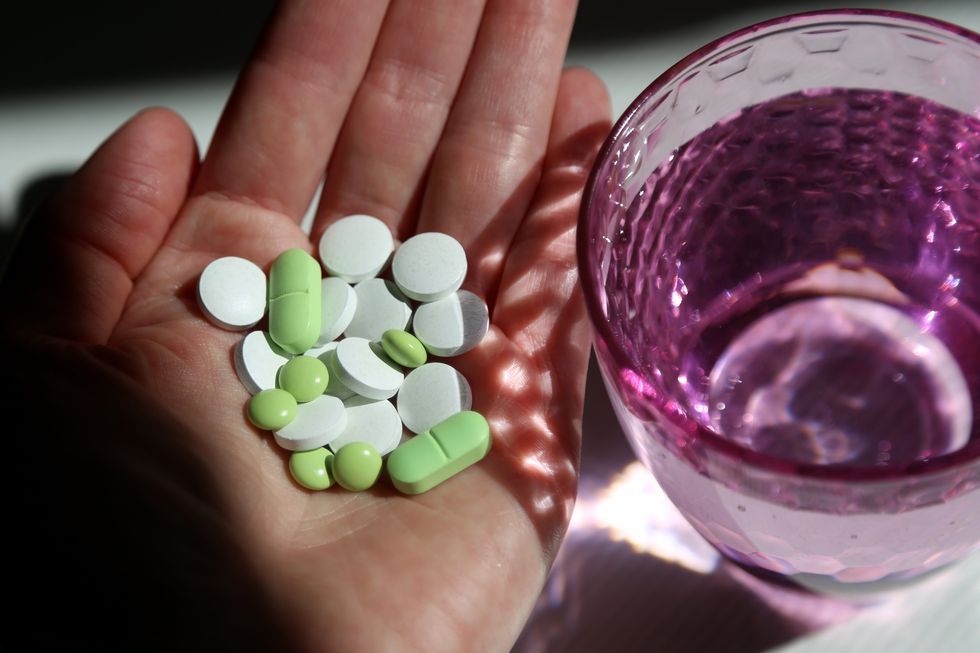UK faces 'greatest health threat' as antibiotic resistance drives deadly infections up 17%

Britons have been urged to only take antibiotics when prescribed by a healthcare professional
Don't Miss
Most Read
As World AMR Awareness Week kicks off tomorrow, England faces a sobering reality, with deaths from antibiotic-resistant infections jumping by 17 per cent in 2024.
Official figures from the UK Health Security Agency (UKHSA) suggest bacteria are becoming resistant to medicines at an alarming pace, transforming infections that were once easily treatable into potentially deadly threats.
While resistance happens naturally over time, experts believe the misuse and overuse of antibiotics has put this process into overdrive.
TRENDING
Stories
Videos
Your Say

Antibiotic resistance builds slowly over time
|GETTY
The numbers paint a stark picture, as the World Health Organisation revealed last month that one in six laboratory-confirmed bacterial infections worldwide in 2023 were resistant to antibiotic treatments.
Between 2018 and 2023, resistance increased in over 40 per cent of the pathogen-antibiotic combinations monitored. The average annual rise was a staggering 515 per cent.
"Antimicrobial resistance is outpacing advances in modern medicine, threatening the health of families worldwide," warned WHO Director-General Dr Tedros Adhanom Ghebreyesus.
Here in England, the latest surveillance data shows we're averaging nearly 400 new resistant infection cases every week.
Cases of bacteraemia - where bacteria circulate in the blood - tell their own story. These life-threatening infections rose from 18,740 in 2023 to 20,484 in 2024, a 9.3 per cent increase.
During this same period, the death toll climbed from 2,041 to 2,379.
LATEST DEVELOPMENTS
The Pharmacy First scheme has sparked a dramatic shift in how antibiotics are prescribed, with private sector dispensing more than doubling between 2019 and 2024, and 22 per cent of all antibiotics now coming through private prescriptions.
The scheme, introduced under Rishi Sunak's government, lets pharmacies treat seven common conditions without GP involvement. These include earache, sinusitis, sore throat, infected insect bites and shingles.
Pharmacies are supplying antibiotics in 45 per cent to 85 per cent of consultations, depending on the condition.
While NHS primary care antibiotic use fell over the five-year period, overall prescribing across the NHS and private sectors rose by 10.7 per cent.
The UKHSA says the service follows NICE prescribing guidance, but questions remain about whether this prescribing shift might fuel resistance patterns.
The 'antibiotic amnesty' offers a practical way for people to join the fight against resistance, with community pharmacies accepting unused antibiotics for safe disposal, marking a simple step that makes a real difference.
"Antibiotic resistance is one of the greatest health threats we face," said UKHSA's chief executive, Prof Susan Hopkins. "More people than ever are acquiring infections that cannot be effectively treated by antibiotics.
"This puts them at greater risk of serious illness and even death, with our poorest communities hit the hardest."

Pharmacies are supplying antibiotics in 45 per cent to 85 per cent of consultations
|GETTY
She urges only taking antibiotics when prescribed by a healthcare professional. Complete the full course. Never save them for later or share with friends and family.
People can also become Antibiotic Guardians by pledging to use antibiotics responsibly, helping ensure these vital medicines remain effective for future generations.
Our Standards: The GB News Editorial Charter











